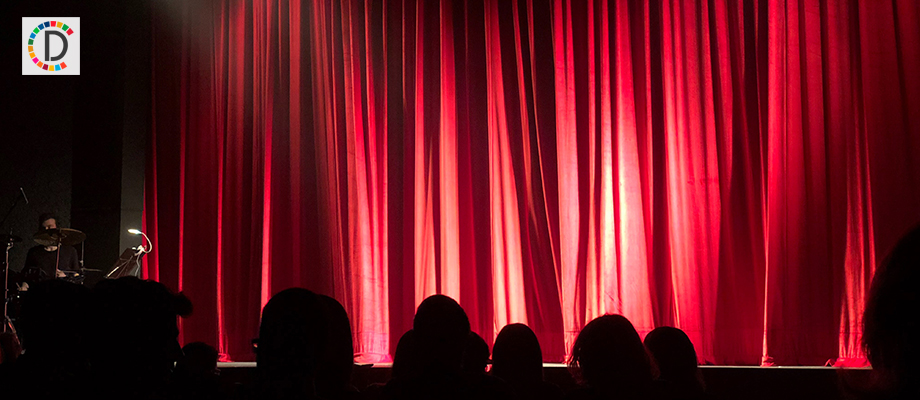PTI Fact Check: India doesn't have a national language, Hindi, English are official languages
The recorded proceedings or the business of the Parliament can only be in Hindi and English, he added.Since Hindi was accepted as an official language and the Government of India has promoted the language in its communication, the misconception that Hindi is the national language persists, said Ghose....

- Country:
- India
Two of India's best known film stars, Ajay Devgn and Kangana Ranaut, were at the centre of debate recently for their claims that Hindi is the national language. But that is an incorrect assertion as India does not have a national language.
As the row on the emotive issue of linguistic diversity escalated, legal experts and others cited the Constitution to say that Hindi is an "official language" along with English.
''India does not have a national language but it has two official languages, Hindi and English, and several regional languages recognised in the eighth schedule of the Constitution of India... Constitutionally, there's no concept like 'rashtra bhasha' (national language),'' senior advocate Sanjoy Ghose told PTI.
''India doesn't have a national language...," added Supreme Court advocate Anas Tanwir.
The eighth schedule of the Constitution recognises 22 languages. According to Articles 344(1) and 351, these are -- Assamese, Bengali, Gujarati, Hindi, Kannada, Kashmiri, Konkani, Malayalam, Manipuri, Marathi, Nepali, Oriya, Punjabi, Sanskrit, Sindhi, Tamil, Telugu, Urdu, Bodo, Santhali, Maithili and Dogri.
The recent debate started with Devgn's comment in response to Kannada star Kichcha Sudeep that "Hindi is no longer our national language".
''My brother, according to you if Hindi is not our national language then why do you release your mother tongue movies by dubbing them in Hindi? Hindi was, is and always will be our mother tongue and national language. Jan Gan Man,'' Devgn said on Twitter in Hindi.
As controversy spiralled, politicians and film personalities were among those who spoke up to say Hindi is like any other language in India and not the national language. These included Karnataka Chief Minister Basavaraj Bommai, National Conference's Omar Abdullah, Congress' Siddaramaiah, JD-S' H D Kumaraswamy as well as director Ram Gopal Varma, actor Gulshan Devaiah and south star and politician Ramya.
Ranaut backed Devgn and claimed that Hindi was accorded the 'national language' status in the Constitution.
''Hindi is our national language. So when Ajay Devgn ji said that Hindi is the national language of India, he was not wrong...
''Today within the country we are using English as the link to communicate. Should that be the link, or should Hindi or Sanskrit be that link, or Tamil? We have to take that call... As of now, Hindi is the national language according to the Constitution,'' Ranaut said at a press conference in Mumbai.
Both Devgn and Ranaut have a massive social media following. Devgn has over 15.4 million Twitter followers and 8.5 million followers on Instagram. Ranaut, whose Twitter account was suspended permanently in 2021 for repeated violations of rules, has 8.8 million followers on Instagram.
According to Article 343(1) of the Constitution, Hindi in Devanagari script will be the official language. However, under the Official Languages Act, English will be the main language for official purposes, said Tanwir.
''So Hindi and English become the official languages for transactions. In high courts and Supreme Court, only English is allowed. The recorded proceedings or the business of the Parliament can only be in Hindi and English,'' he added.
Since Hindi was accepted as an ''official language'' and the Government of India has ''promoted'' the language in its communication, the misconception that Hindi is the 'national language' persists, said Ghose.
''... you had the Government of India communicate in Hindi, which has led to the understanding that this (Hindi) is the national language. The policy of the government has been to bring out all ordinances, acts, notifications and gazettes of the Government of India in Hindi along with English. So it's bilingual,'' Ghose said.
In the late 1960s, there was a move to make Hindi the official language of India and there was massive resistance in the southern states. What followed was the three-language formula, Ghose said.
As stated on the Ministry of Education website, the formula enunciated in the 1968 National Policy Resolution provided for the study of ''a modern Indian language, preferably one of the Southern languages, apart from Hindi and English in the Hindi speaking areas and of Hindi along with the regional languages and English in the non-Hindi speaking areas''.
Many people in Haryana learnt Tamil and there was also a move to learn Hindi as a result, added Ghose.
Recently, Union Home Minister Amit Shah had said Hindi should be accepted as an alternative to English and not to local languages.
So how to dispel this myth that Hindi is the 'national language' of India? The answer is simple, said Ghose.
''If they'll read the Constitution, they'll know,'' he added.
(This story has not been edited by Devdiscourse staff and is auto-generated from a syndicated feed.)
ALSO READ
Blaze Disrupts BSNL Services Across Southern States
Strategic Shift: Trump Nominates New Southern Command Leader Amid Rising Tensions
Nestlé Faces New Regulations for Perrier Production in Southern France
Honoring Heroes: Celebrating Vijay Diwas at Southern Command War Memorial
Honoring Heroes: Vijay Diwas 2025 Commemoration at Southern Command










